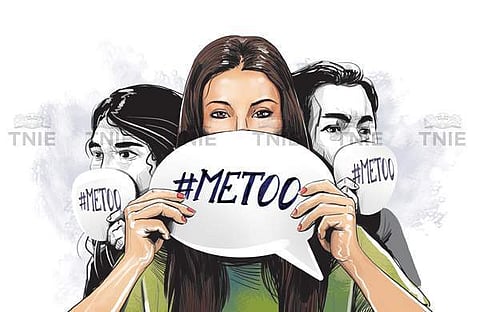

CHENNAI: The Tamil Nadu School Education Department on Monday released detailed guidelines for schools to ensure student safety and protection from sexual violence. The initiative comes after multiple allegations of abuse against school teachers surfaced recently.
The department has directed schools in Tamil Nadu to constitute a student safeguarding advisory committee (SAC) which will continually review, monitor and recommend measures at the institutional level on all aspects of student safety. The SAC committee should comprise the principal, two teachers, two PTA members, a management representative, a non-teaching staff member and an optional external member.
The guidelines have been issued in the wake of several allegations of sexual harassment, abuse and misconduct surfacing on social media against faculty members in different schools in the city. Chief Minister MK Stalin and School Education Minister Anbil Mahesh Poyyamozhi responded to the allegations stating that a committee will be constituted to review the situation in the state. Stalin called for forming a committee by the School Education Commissioner to issue guidelines regarding online classes during the pandemic situation.
The School Education Department secretary Kakarla Usha has issued guidelines covering a number of aspects with regard to student safety both on campus as well as online, and detailed the complaint mechanisms to be set up as well as audit tools for safety checks.
As part of this, schools are expected to record all online classes and random audits of the same should be carried out periodically by a member of the SAC. Both students and faculty members are to follow a dress code suitable for classroom settings during online classes as well.
A state level Central Complaint Centre (CCC) with a hotline facility will be set up by the School Education Department, as well as a dedicated e-mail address to receive school-based complaints of sexual abuse against students. In the case of complaints received at school through any mode of communication, the SAC should immediately inform the CCC. All communication between the CCC and the callers will be documented and kept confidential.
The purpose of the CCC is to offer an alternative complaint mechanism and provide appropriate guidance on the protocol to be observed so that all complaints are addressed.
In addition to this, a trained, multidisciplinary team drawn from different fields will guide callers and complainants regarding the protocol to be followed on receipt of an allegation. Further, the guidelines state that all teaching and non-teaching staff have to complete an annual mandatory orientation on sexual offences, defined under POCSO Act, 2012 following which a compliance report will be sent to the department.
The School Education Department will develop a model guide for this orientation, which will include understanding issues specific to child sexual abuse, behaviour of students and adults as well the relevant legal mechanisms and protocol of response to be followed by schools.